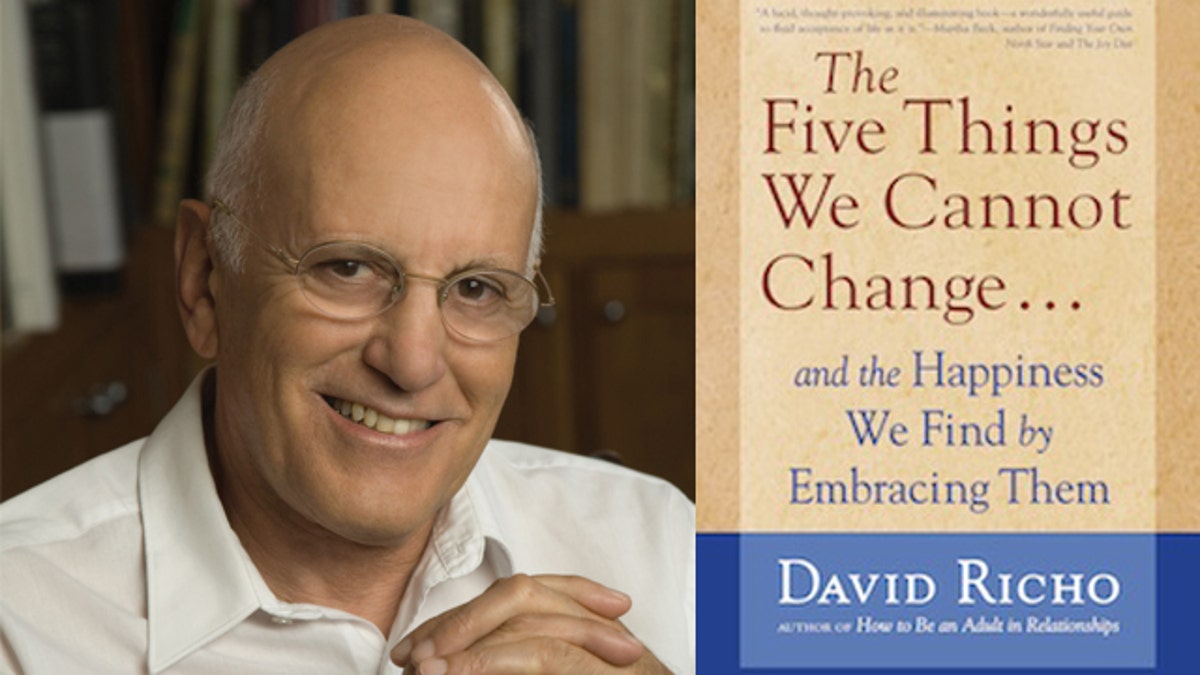
Throughout my career as a psychotherapist, I have learned a great deal from the people with whom I’ve worked. It’s my goal to uncover and share the keys to maintaining healthy, fulfilling relationships in order to help us on our quests to lead balanced, thoughtful lives.
Here are some ideals that I strive to put into practice everyday from The Five Things We Cannot Change and the Happiness We Find in Embracing Them:
ON MYSELF
• I do my best to keep my word, honor commitments, and follow through on the tasks I agree to do.
• I am letting go of the need to keep up appearances or to project an impressive self-image. I now want to appear as I am, without pretense and no matter how unflattering. I do not want to use any charms of body, word, or mind to trick or seduce others. Being loved for who I am has become more important—and more interesting—than upholding the ever-shaky status of my ego.
• I welcome feedback that shows me where I am less caring than I can be, where I am less tolerant, where less open about my real feelings. When I am shown up as a pretender or called on being mean or inauthentic, I am not defensive but take it as information about what I have to work on.
• I am practicing how to ask for what I need without demand, manipulation, or expectation.
• As I honor the timing, wishes, and limits of others, I can show respect by taking no for an answer.
ON LOVE AND RELATIONSHIPS
• I now measure my success by how much steadfast love I have, not by how much I have in the bank, how much I achieve in business, or how much power I have over others. Expressing my full and unique capacity to love is becoming the central—and most exciting—focus of my life.
• I am less and less competitive in relationships at home and work and find happiness in cooperation and community. I shun situations in which my winning means that others lose in a humiliating way.
• In intimate bonds, I honor equality, keep agreements, work through problems, and act in affectionate and trustworthy ways. My goal is not to use a relationship to gratify my own ego but to dispossess myself of ego to gratify the relationship. Also, I respect the boundaries of other people’s relationships.
• More and more, my sexuality expresses love, passion, and joyful playfulness. I am committed to a responsible adult style of relating and enjoying.
ON NEGATIVITY
• I am practicing ways to show my anger against unfairness directly and nonviolently rather than in abusive, threatening, blaming, out-of-control, or passive ways.
• I do not knowingly hurt others. If they hurt me, I can say “Ouch!” I can open a dialogue and ask for amends. No matter what, I do not choose to retaliate, hold grudges, or hate anyone.
• Confronted with the suffering in the world, I do not turn my eyes away, nor do I get stuck in blaming God or humanity but simply ask: “What then shall I do?” I keep finding ways to respond even if it has to be minimal: “It is better to light one candle than to curse the darkness.”
ON OTHERS
• I act kindly toward others not to impress or obligate them but because I really am kind —or working on it. If others fail to thank me or to return my kindness, that does not have to stop me from being loving nonetheless.
• I have a sense of humor but not at the expense of others so I do not engage in ridicule, put-downs, teasing, or sarcasm. When people are sarcastic toward me I do not use “comebacks.” I seek simply to feel the pain in both of us and look for ways to bring more mutual respect into our communication.
• I do not laugh at people’s mistakes, distresses, or misfortunes. Instead I look for ways to be supportive.
• I forego taking advantage of anyone because of his ignorance, misfortune, or financial straits.
• I avoid Criticizing, Interfering, or giving Advice that is not specifically asked for. I take care of myself by staying away from those who use this CIA approach toward me, while nonetheless holding them in my practice of loving-kindness.
• I never give up on others. I believe that everyone has goodness and that being loved can release it.
I am not hard on myself when I fail to live up to these ideals. What matters is that I keep trying. I do not think I am above other people because I honor this list, nor do I demand that others follow it. I wish you the best on your journey: may you find and maintain the healthiest, most loving life possible!
About the author:
David Richo, PhD, is a therapist and author who leads popular workshops on personal and spiritual growth. Known for drawing on Buddhism, poetry, and Jungian perspectives in his work, Richo is the author of How to Be an Adult in Relationships and The Five Things We Cannot Change. He lives in Santa Barbara and San Francisco.
Click to purchase the full ebook of The Five Things We Cannot Change on Amazon, Apple, Barnes & Noble, or Sony.




















